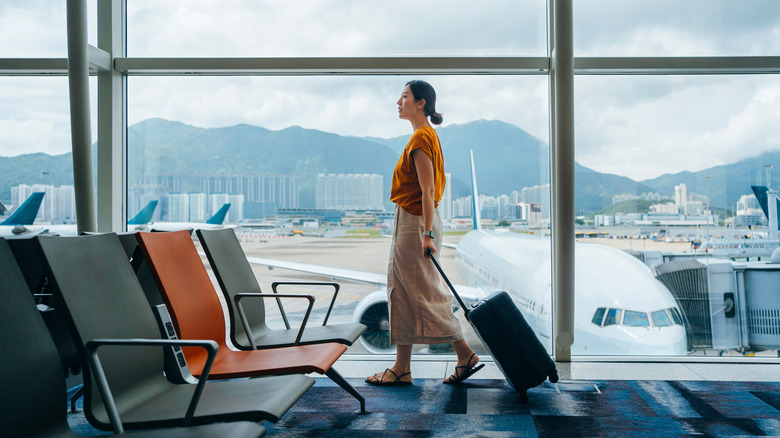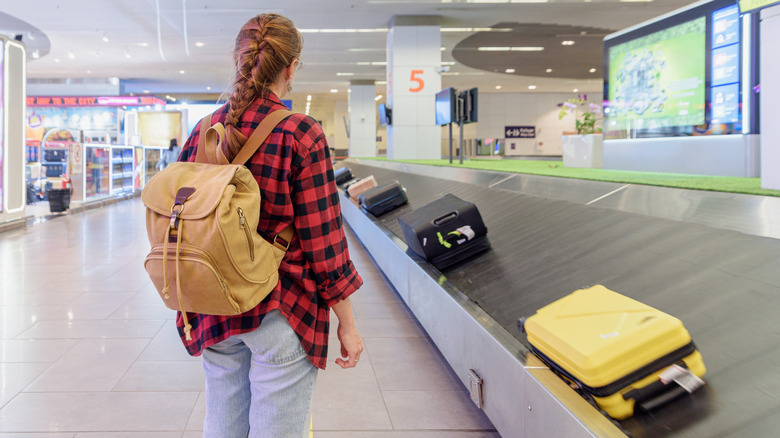Your Checked Luggage Has A Lower Chance Of Getting Lost During These Types Of Layovers
Luggage lost in transit to your holiday destination is a source of headaches for unlucky travelers. According to the U.S. Department of Transportation's August 2025 report, between January and June, 0.52% of bags flying on U.S. airlines were mishandled, a little over 1.2 million suitcases and other under-the-plane cargo. This number has gone down compared to the same period of the previous year, when the number sat at 0.56%. It's an encouraging trend, but travelers should still be aware of why — or rather, when — luggage is more likely to be lost.
The most common cause of lost checked luggage is short layovers. Unloading and moving bags is a complicated process that involves juggling multiple priorities while also trying to keep everything going as smoothly as possible. While a 45-minute layover may seem like a good idea for you, it may not be enough time for the airline to find, move, and deliver your bag to your connecting flight. In other words, the longer the layover, the lower the chance of your bag not making it to your final destination. It's recommended to aim for at least a three-hour layover when possible, depending on factors like the airport size, whether you're switching airlines and need to collect and recheck your baggage, and if you have to go through customs while traveling internationally. This window also gives enough leeway in case your first flight is delayed.
Other causes of lost luggage, like rerouting and system failures, are rare and unavoidable from the traveler's side. And even with all precautions taken, human error can happen, so it's good to be prepared for worst-case scenarios.
What to do if your checked luggage is lost or delayed
Even if you book a flight with a long layover, your bag can still be mishandled. You may be surprised to find that lost checked luggage is, more often than not, one of the things your travel insurance probably doesn't cover. This is because damage, loss, or delay of luggage falls under the airline's responsibility, not the insurance company's. Every airline has its own definition of what is lost, damaged, or delayed luggage, and it may also vary by flyer status and your ticket. It's crucial that travelers know their rights and consider which airlines owe passengers when their luggage is lost or delayed. Without the right information, you may go along with filing your claim without knowing that some airlines will reimburse you generously for delayed luggage — you just have to know what to ask.
Knowing how to find your bags is just as important as taking preventive measures. The simplest and most effective way to avoid losing luggage is to fly with a carry-on only. If you have to travel with bigger suitcases, try to fly direct and avoid layovers altogether. Keep a copy of your destination and itinerary in your suitcase to help airlines get your luggage back to you in case it gets left behind. Finally, but certainly not least, be sure that there are no old travel tags or stickers on your suitcase, which can confuse and further delay the sorting of luggage during unloading. Help the airline workers help you get to your holiday as swiftly as possible.

